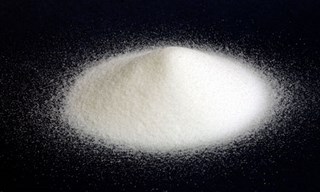Can you distinguish addicted from stupid?
Regular readers know I’m learning about addiction because I see it as relevant to much of our polluting behavior. I’m not trained as a psychologist, so I’ve looked up the term for a definition and found a lot, not all consistent with each other, many conflicting.
Combining many sources, my working definition is “a brain disorder where someone can’t stop choosing rewarding stimuli despite hurting themselves or others.” I put this definition together based on commonalities of definitions from respected institutions, not based on my personal scientific observations. Independent of institutions’ definitions, I observe people around me doing what falls within that definition.

People meeting that definition include the hard drug users in Washington Square Park and people who use social media becoming miserable, including to the point of suicide. Scientific institutions recognize these addictions. I see many behaviors meeting the definition but recent enough that institutions probably haven’t had time to consider recognizing them. They include littering, consuming doof, and overtraveling.
Speaking of littering, I see people littering sadly often. I see litter nearly everywhere nearly all the time. Without going out of my way, I may pick up a hundred pieces in a day.
Can you distinguish addicted from stupid?
I’ve been thinking lately about the challenge of distinguishing between hurting yourself out of addiction and—I know many will understand me, but if you look without judgment you’ll see I’m writing innocuously—hurting yourself out of being stupid. To clarify, I’m not saying anyone is stupid for being addicted, so anyone who reads what I wrote that way is misunderstanding me. On the contrary, you can get clean from addiction. I’m exploring to what extent one can distinguish harm-yourself addicted from harm-yourself stupid.
Then lo and behold, podcast guest and fellow professor at NYU Jonathan Haidt wrote about Americans being stupid lately in his piece Why the Past 10 Years of American Life Have Been Uniquely Stupid. In particular, he writes about social media causing it: “In the 20th century, America built the most capable knowledge-producing institutions in human history. In the past decade, they got stupider en masse.”
What do you know? I’m not the only person seeing what looks like stupidity. He goes farther than I do, calling people and institutions stupid, but not individuals, as he sees it as a social effect, as I understand. For my part, I’m calling no one stupid, only that I find it increasingly challenging to distinguish addicted people from stupid. Also, when I consider that a lot of polluting behavior meets many definitions of addiction, including my working definition, nearly everyone seems addicted. When I see someone litter, I can tell they’re probably addicted to polluting behavior. Are they being stupid? What about people who spend money on things they know will hurt them, like coffee in a disposable cup every morning?
Haidt continues, “People who think differently and are willing to speak up if they disagree with you make you smarter, almost as if they are extensions of your own brain. People who try to silence or intimidate their critics make themselves stupider, almost as if they are shooting darts into their own brain.”
He clarifies that it’s happening more recently: “This, I believe, is what happened to many of America’s key institutions in the mid-to-late 2010s. They got stupider en masse because social media instilled in their members a chronic fear of getting darted.”
Why it matters
I think it matters because I think knowing that risking addiction risks making yourself indistinguishable from stupid may deter people from starting. I think some addicted people will see what they are doing to themselves and fight and overcome their addictions more, including polluting less. Polluting hurts humans, animals, and plants, lowering Earth’s ability to sustain life.
We all benefit from anyone getting clean from their addiction. In particular, I benefit from you getting clean. If you see that you polluting makes you indistinguishable from stupid, you may stop.
Haidt shows how high the stakes, for what harm social media can cause. “But it is within our power to reduce social media’s ability to dissolve trust and foment structural stupidity.” I see the harm pollution can cause as greater. From a leadership view, many problems addiction causes are different manifestations of the same problem: our brain disorders where we can’t stop choosing rewarding stimuli despite hurting ourselves or others.
Read my weekly newsletter

On initiative, leadership, the environment, and burpees